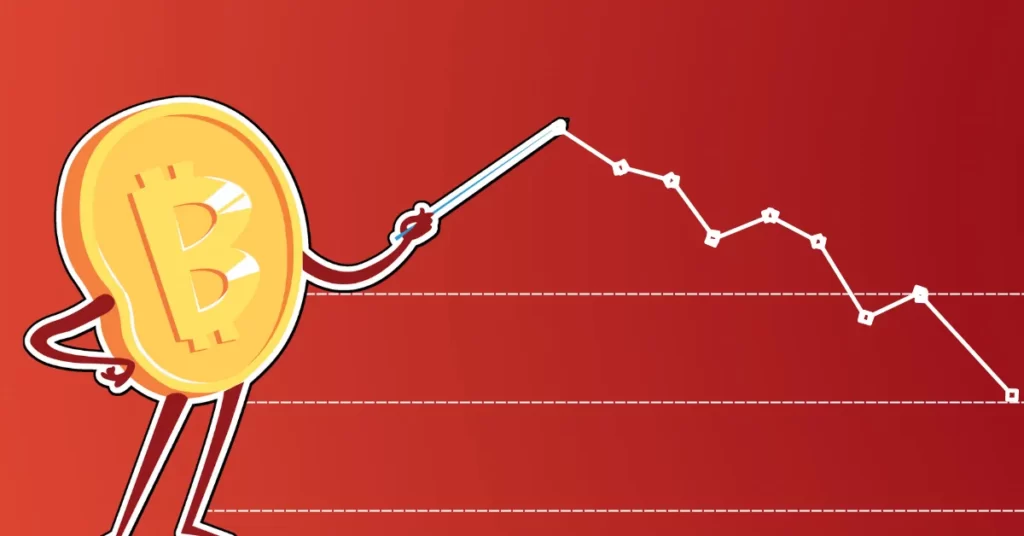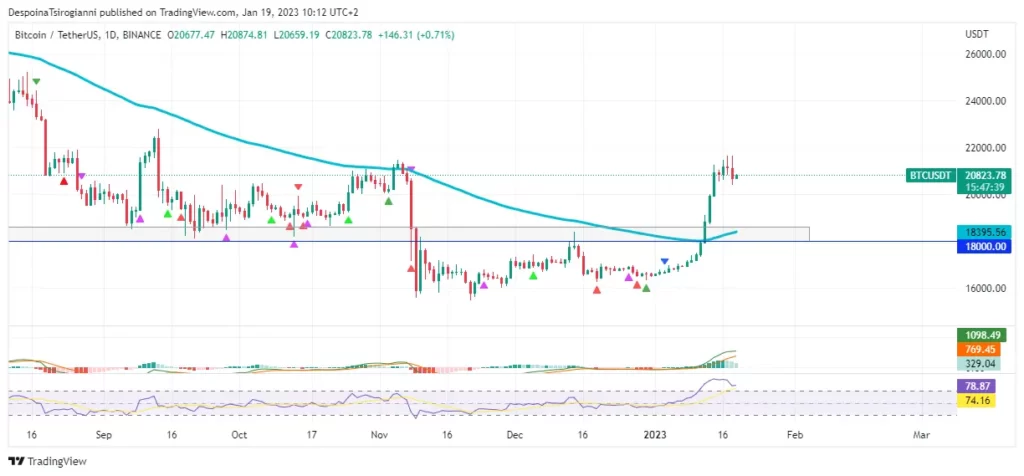Bitcoin has dropped below the $30,000 support level amid a wider crypto selloff, triggered by UK inflation data and negative funding rates.

Over $180 million has been liquidated in the past four hours as cryptocurrencies bleed and Bitcoin falls.
The perpetual funding rate has turned negative on Binance, indicating bearish sentiment among traders. Meanwhile, UK inflation data has fanned fears of higher interest rates, putting pressure on the crypto market.
Bitcoin traded at $29,175 at 11:50 a.m. in London on Wednesday, down 3.5%. The largest cryptocurrency by market size has failed to maintain the $30,000 level, psychological support for many investors.
Other major coins such as Ether, Solana, and Avalanche have also suffered steeper declines, losing between 6% and 10%.

The sudden selloff triggered liquidations of $175 million worth of long positions across crypto markets, data from Coinglass showed.
After Bitcoin recovered $30,000 this week, longs liquidated most of their positions. The permanent funding rate on Binance, which measures the cost of keeping long positions, reached negative for the first time since December 2022, souring market sentiment.
This indicates that more traders are willing to short Bitcoin than to go long.
One of the possible factors behind the bearish mood is the UK inflation data, which showed that consumer prices rose by 10.4% year-on-year in March, well above the Bank of England’s target of 2%.
As global inflation rises, this adds to recent concerns that central banks would have to tighten their monetary policies sooner than planned. Risk assets like cryptocurrency lose appeal to safer, yield-bearing alternatives as interest rates rise.
Bitcoin has been struggling to regain momentum since reaching an all-time high of over $52,000 in November 2022.
The crypto market has faced several headwinds, including regulatory crackdowns, environmental concerns, and competition from other blockchains. Since June 2022, Bitcoin’s share of the crypto market valuation has dropped below 40%.
Despite the recent slump, some analysts remain optimistic about Bitcoin’s long-term prospects. They point out that the network fundamentals are still strong, with growing adoption, innovation, and security.
Bitcoin also protects against inflation and monetary debasement, which are expected to remain post-pandemic.
However, in the short term, Bitcoin faces several challenges and uncertainties that could keep its price under pressure.
These include the upcoming launch of a Bitcoin futures ETF in the US, which could trigger more volatility and regulatory scrutiny; the potential tapering of quantitative easing by major central banks; and the emergence of new variants of Covid-19 that could disrupt the global economic recovery.
